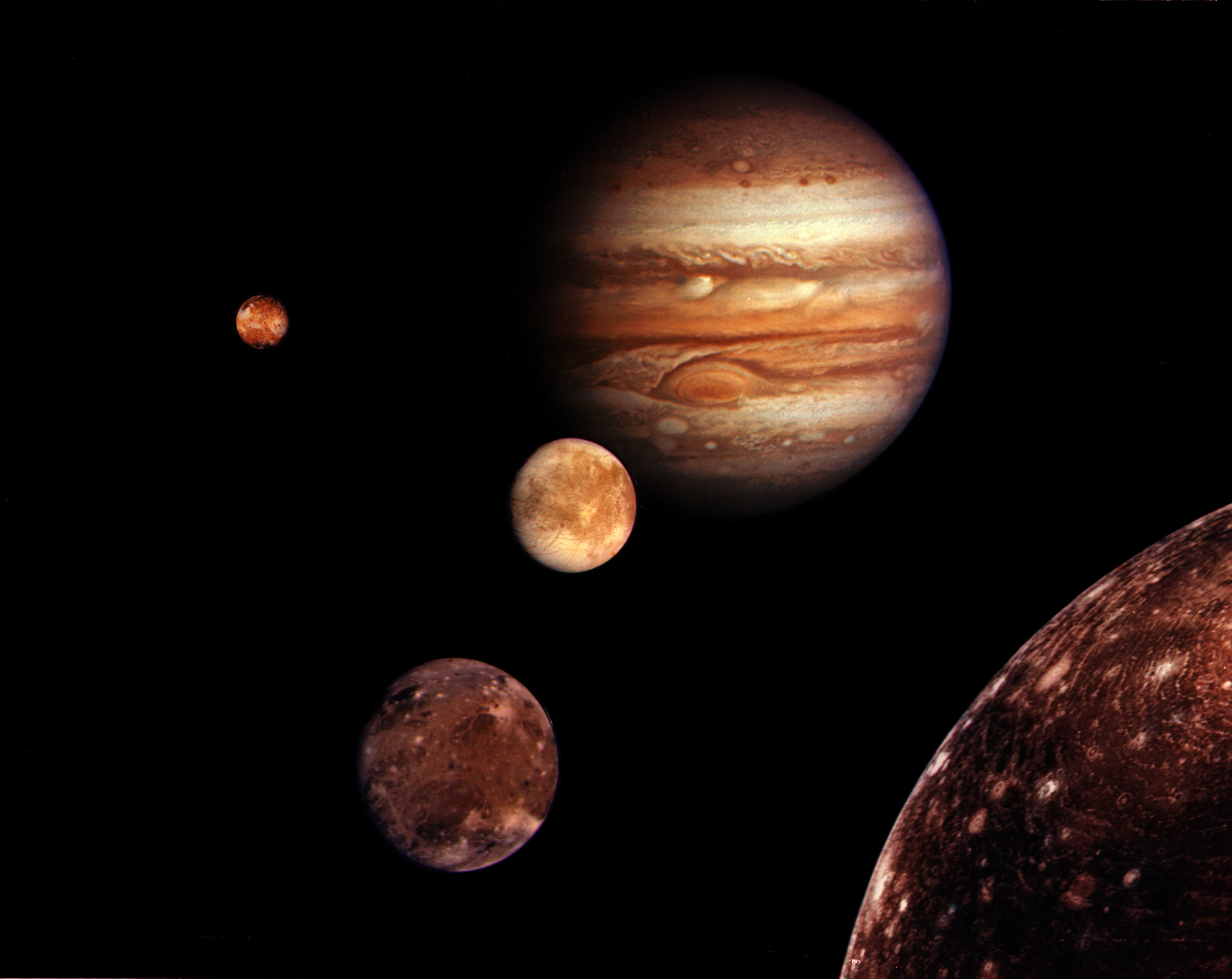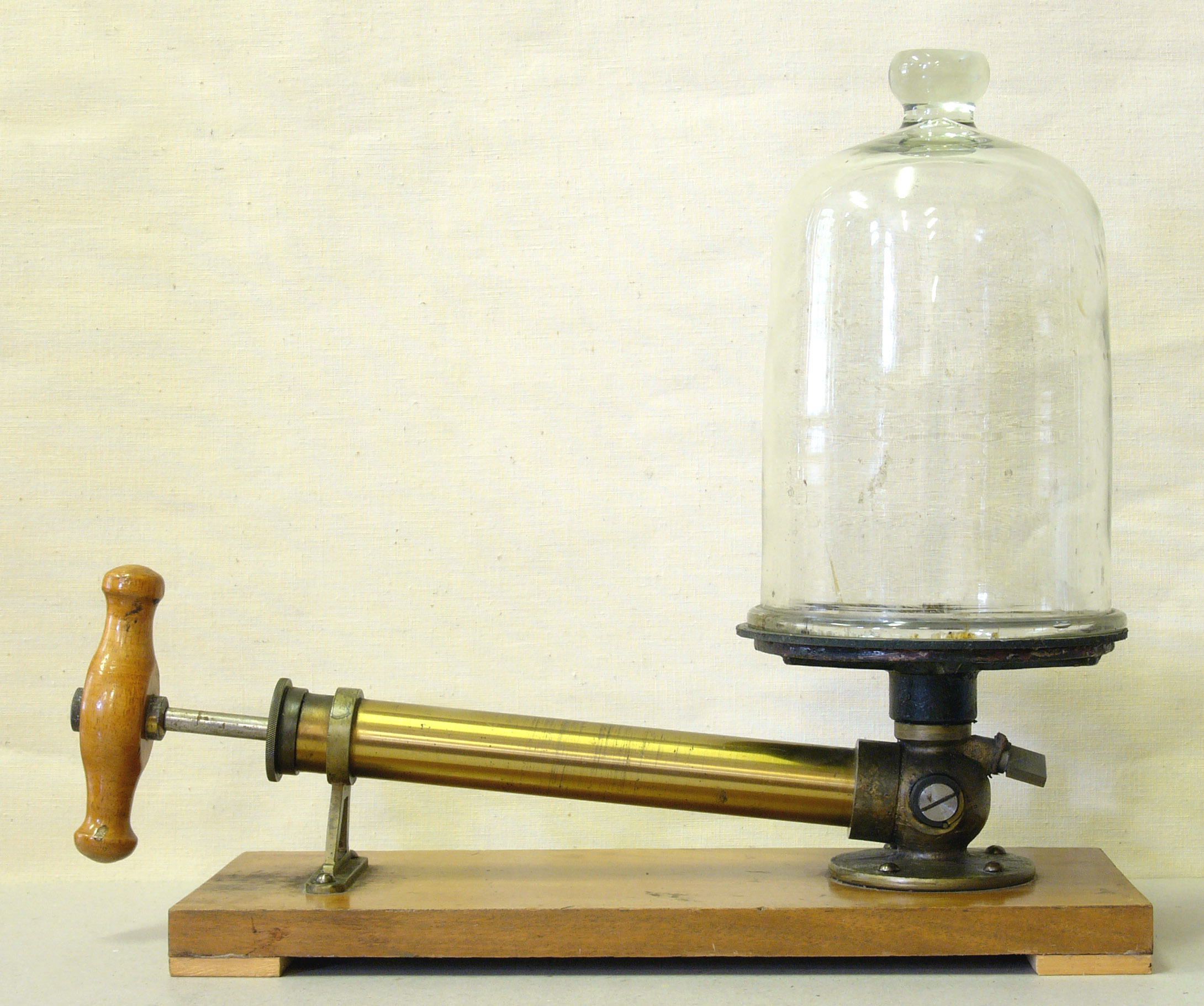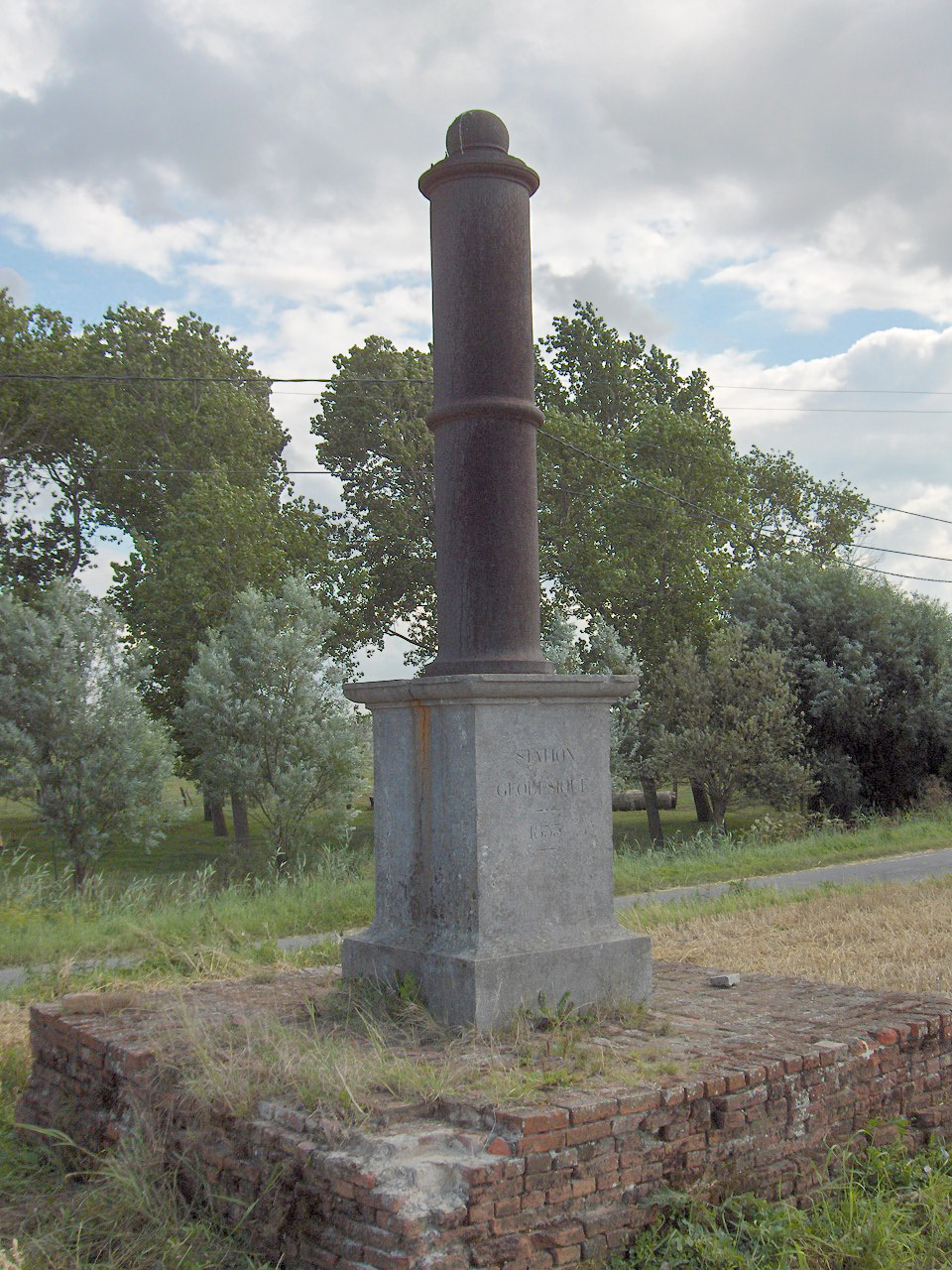|
Paolo Casati
Paolo Casati (in Latin, Paulus Casatus) (1617 – 22 December 1707) was an Italian Jesuit mathematician. He belonged to the jesuit scientific school founded in the Provincia Veneta by Giuseppe Biancani, and represented later by Niccolò Cabeo, Niccolò Zucchi, Giovanni Battista Riccioli and Francesco Maria Grimaldi. Biography Born in Piacenza to a Milanese family, he joined the Jesuits in 1634. After completing his mathematical and theological studies, he moved to Rome, where he assumed the position of professor at the Collegio Romano. He was given the chair in mathematics after teaching philosophy and theology. Casati in Sweden In 1651, Casati was sent on a mission to Stockholm in order to gauge the sincerity of Christina of Sweden's intention to become Catholic. He subsequently returned to his post at Rome. In 1677, he moved to the Jesuit College in Parma, where he remained until his death. Casati was a friend and correspondent of the famous florentine librarian A ... [...More Info...] [...Related Items...] OR: [Wikipedia] [Google] [Baidu] |
Latin
Latin (, or , ) is a classical language belonging to the Italic branch of the Indo-European languages. Latin was originally a dialect spoken in the lower Tiber area (then known as Latium) around present-day Rome, but through the power of the Roman Republic it became the dominant language in the Italian region and subsequently throughout the Roman Empire. Even after the fall of Western Rome, Latin remained the common language of international communication, science, scholarship and academia in Europe until well into the 18th century, when other regional vernaculars (including its own descendants, the Romance languages) supplanted it in common academic and political usage, and it eventually became a dead language in the modern linguistic definition. Latin is a highly inflected language, with three distinct genders (masculine, feminine, and neuter), six or seven noun cases (nominative, accusative, genitive, dative, ablative, and vocative), five declensions, four verb conjuga ... [...More Info...] [...Related Items...] OR: [Wikipedia] [Google] [Baidu] |
Antonio Magliabechi
Antonio di Marco Magliabechi (or Magliabecchi; 29 October 1633 - 4 July 1714) was an Italian librarian, scholar and bibliophile. Biography He was born at Florence, the son of a burgher named Marco Magliabechi, and Ginevra Baldorietta. Although Magliabechi was apprenticed to a goldsmith, and worked in this capacity until his fortieth year, Michele Ermini, librarian to Cardinal de' Medici, recognized his academic ability and taught him Latin, Greek, and Hebrew. In 1673 he became librarian to Cosimo III de' Medici, Grand Duke of Tuscany. Magliabechi became the central figure of literary life in Florence, and scholars of every nation sought his acquaintance and corresponded with him. Whilst this eminent post gave him considerable prominence, he is remembered more for his personal characteristics and his vast store of self-acquired learning. He has been described as a literary glutton, and the most rational of bibliomaniacs, inasmuch as he read everything he bought. His own library ... [...More Info...] [...Related Items...] OR: [Wikipedia] [Google] [Baidu] |
Genoa
Genoa ( ; it, Genova ; lij, Zêna ). is the capital of the Italian region of Liguria and the List of cities in Italy, sixth-largest city in Italy. In 2015, 594,733 people lived within the city's administrative limits. As of the 2011 Italian census, the Province of Genoa, which in 2015 became the Metropolitan City of Genoa, had 855,834 resident persons. Over 1.5 million people live in the wider metropolitan area stretching along the Italian Riviera. On the Gulf of Genoa in the Ligurian Sea, Genoa has historically been one of the most important ports on the Mediterranean Sea, Mediterranean: it is currently the busiest in Italy and in the Mediterranean Sea and twelfth-busiest in the European Union. Genoa was the capital of Republic of Genoa, one of the most powerful maritime republics for over seven centuries, from the 11th century to 1797. Particularly from the 12th century to the 15th century, the city played a leading role in the commercial trade in Europe, becoming one o ... [...More Info...] [...Related Items...] OR: [Wikipedia] [Google] [Baidu] |
Galileo Affair
The Galileo affair ( it, il processo a Galileo Galilei) began around 1610 and culminated with the trial and condemnation of Galileo Galilei by the Roman Catholic Inquisition in 1633. Galileo was prosecuted for his support of heliocentrism, the astronomical model in which the Earth and planets revolve around the Sun at the centre of the universe. In 1610, Galileo published his ''Sidereus Nuncius'' (''Starry Messenger''), describing the observations that he had made with his new, much stronger telescope, amongst them, the Galilean moons of Jupiter. With these observations and additional observations that followed, such as the phases of Venus, he promoted the heliocentric theory of Nicolaus Copernicus published in ''De revolutionibus orbium coelestium'' in 1543. Galileo's discoveries were met with opposition within the Catholic Church, and in 1616 the Inquisition declared heliocentrism to be "formally heretical." Galileo went on to propose a theory of tides in 1616, and of come ... [...More Info...] [...Related Items...] OR: [Wikipedia] [Google] [Baidu] |
Otto Von Guericke
Otto von Guericke ( , , ; spelled Gericke until 1666; November 20, 1602 – May 11, 1686 ; November 30, 1602 – May 21, 1686 ) was a German scientist, inventor, and politician. His pioneering scientific work, the development of experimental methods and repeatable demonstrations on the physics of the vacuum, atmospheric pressure, electrostatic repulsion, his advocacy for the reality of "action at a distance" and of "absolute space" were noteworthy contributions for the advancement of the Scientific Revolution. Von Guericke was a very pious man in the Dionysian tradition and attributed the vacuum of space to the creations and designs of an infinite divinity. Von Guericke described this duality "as something that 'contains all things' and is 'more precious than gold, without beginning and end, more joyous than the perception of bountiful light' and 'comparable to the heavens'." Biography Early life and education Otto von Guericke was born to a patrician family of Magdeburg. ... [...More Info...] [...Related Items...] OR: [Wikipedia] [Google] [Baidu] |
Vacuum
A vacuum is a space devoid of matter. The word is derived from the Latin adjective ''vacuus'' for "vacant" or "void". An approximation to such vacuum is a region with a gaseous pressure much less than atmospheric pressure. Physicists often discuss ideal test results that would occur in a ''perfect'' vacuum, which they sometimes simply call "vacuum" or free space, and use the term partial vacuum to refer to an actual imperfect vacuum as one might have in a laboratory or in space. In engineering and applied physics on the other hand, vacuum refers to any space in which the pressure is considerably lower than atmospheric pressure. The Latin term ''in vacuo'' is used to describe an object that is surrounded by a vacuum. The ''quality'' of a partial vacuum refers to how closely it approaches a perfect vacuum. Other things equal, lower gas pressure means higher-quality vacuum. For example, a typical vacuum cleaner produces enough suction to reduce air pressure by around 20%. But hig ... [...More Info...] [...Related Items...] OR: [Wikipedia] [Google] [Baidu] |
Geodesy
Geodesy ( ) is the Earth science of accurately measuring and understanding Earth's figure (geometric shape and size), orientation in space, and gravity. The field also incorporates studies of how these properties change over time and equivalent measurements for other planets (known as '' planetary geodesy''). Geodynamical phenomena, including crustal motion, tides and polar motion, can be studied by designing global and national control networks, applying space geodesy and terrestrial geodetic techniques and relying on datums and coordinate systems. The job title is geodesist or geodetic surveyor. History Definition The word geodesy comes from the Ancient Greek word ''geodaisia'' (literally, "division of Earth"). It is primarily concerned with positioning within the temporally varying gravitational field. Geodesy in the German-speaking world is divided into "higher geodesy" ( or ), which is concerned with measuring Earth on the global scale, and "practical geodes ... [...More Info...] [...Related Items...] OR: [Wikipedia] [Google] [Baidu] |
Astronomy
Astronomy () is a natural science that studies astronomical object, celestial objects and phenomena. It uses mathematics, physics, and chemistry in order to explain their origin and chronology of the Universe, evolution. Objects of interest include planets, natural satellite, moons, stars, nebulae, galaxy, galaxies, and comets. Relevant phenomena include supernova explosions, gamma ray bursts, quasars, blazars, pulsars, and cosmic microwave background radiation. More generally, astronomy studies everything that originates beyond atmosphere of Earth, Earth's atmosphere. Cosmology is a branch of astronomy that studies the universe as a whole. Astronomy is one of the oldest natural sciences. The early civilizations in recorded history made methodical observations of the night sky. These include the Babylonian astronomy, Babylonians, Greek astronomy, Greeks, Indian astronomy, Indians, Egyptian astronomy, Egyptians, Chinese astronomy, Chinese, Maya civilization, Maya, and many anc ... [...More Info...] [...Related Items...] OR: [Wikipedia] [Google] [Baidu] |
Geography
Geography (from Greek: , ''geographia''. Combination of Greek words ‘Geo’ (The Earth) and ‘Graphien’ (to describe), literally "earth description") is a field of science devoted to the study of the lands, features, inhabitants, and phenomena of Earth. The first recorded use of the word γεωγραφία was as a title of a book by Greek scholar Eratosthenes (276–194 BC). Geography is an all-encompassing discipline that seeks an understanding of Earth and its human and natural complexities—not merely where objects are, but also how they have changed and come to be. While geography is specific to Earth, many concepts can be applied more broadly to other celestial bodies in the field of planetary science. One such concept, the first law of geography, proposed by Waldo Tobler, is "everything is related to everything else, but near things are more related than distant things." Geography has been called "the world discipline" and "the bridge between the human and ... [...More Info...] [...Related Items...] OR: [Wikipedia] [Google] [Baidu] |
Cosmology
Cosmology () is a branch of physics and metaphysics dealing with the nature of the universe. The term ''cosmology'' was first used in English in 1656 in Thomas Blount (lexicographer), Thomas Blount's ''Glossographia'', and in 1731 taken up in Latin by German philosophy, German philosopher Christian Wolff (philosopher), Christian Wolff, in ''Cosmologia Generalis''. Religious cosmology, Religious or mythological cosmology is a body of beliefs based on Mythology, mythological, Religion, religious, and Esotericism, esoteric literature and traditions of Cosmogony, creation myths and eschatology. In the science of astronomy it is concerned with the study of the chronology of the universe. Physical cosmology is the study of the observable universe's origin, its large-scale structures and dynamics, and the ultimate fate of the universe, including the laws of science that govern these areas. It is investigated by scientists, such as astronomers and physicists, as well as Philosophy, ph ... [...More Info...] [...Related Items...] OR: [Wikipedia] [Google] [Baidu] |
Marin Mersenne
Marin Mersenne, OM (also known as Marinus Mersennus or ''le Père'' Mersenne; ; 8 September 1588 – 1 September 1648) was a French polymath whose works touched a wide variety of fields. He is perhaps best known today among mathematicians for Mersenne prime numbers, those which can be written in the form for some integer . He also developed Mersenne's laws, which describe the harmonics of a vibrating string (such as may be found on guitars and pianos), and his seminal work on music theory, ''Harmonie universelle'', for which he is referred to as the "father of acoustics". Mersenne, an ordained Catholic priest, had many contacts in the scientific world and has been called "the center of the world of science and mathematics during the first half of the 1600s" and, because of his ability to make connections between people and ideas, "the post-box of Europe". He was also a member of the Minim religious order and wrote and lectured on theology and philosophy. Life Mersenne was ... [...More Info...] [...Related Items...] OR: [Wikipedia] [Google] [Baidu] |









